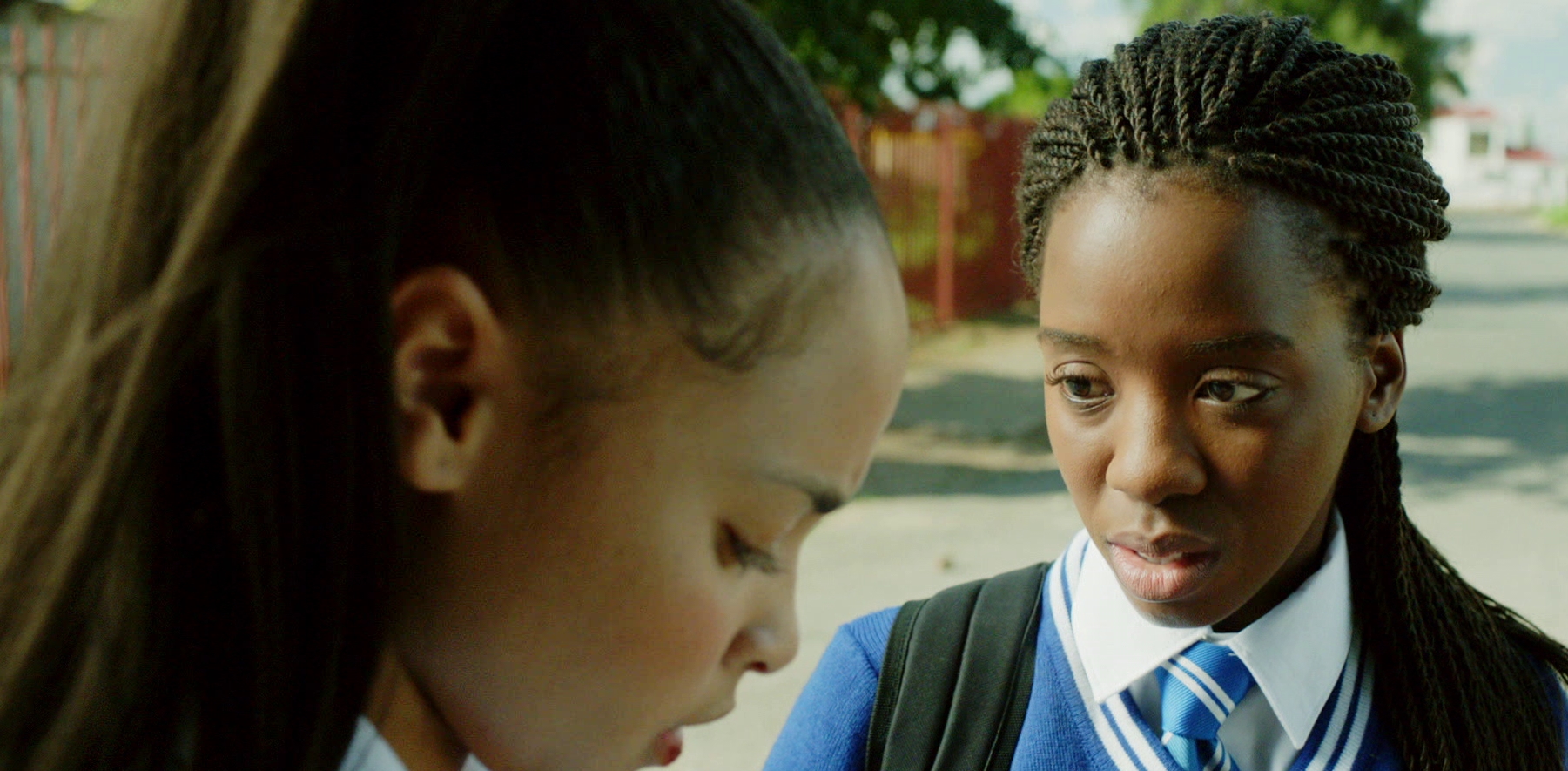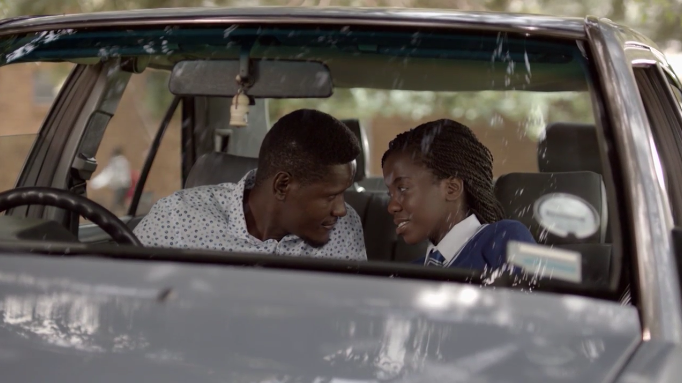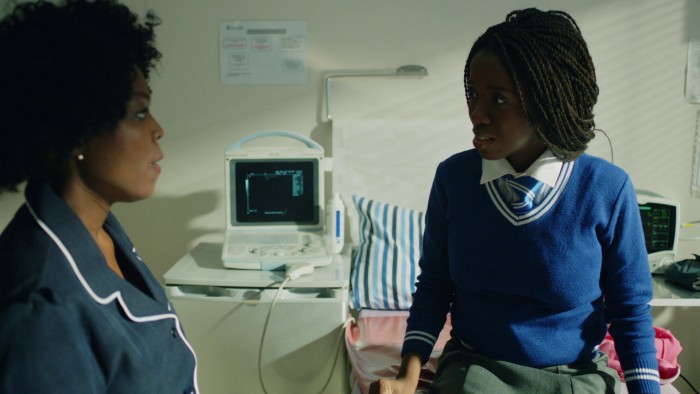The Policing of Women's Bodies Needs to End
News
13/06/2017

The conversation about transactional relationships, (blessers and older men taking advantage of younger, often underaged, girls) is one we know very well in South Africa.
It has been spoken about to death on various social media platforms, headlined plenty of newspapers and, in recent times been spoken about more frequently in the spike of attention that’s been given to femicide in South Africa. While this conversation is one that we have frequently, it isn’t nearly often enough that the deeper truth in the matter is discussed (although last week’s episode of MTV Shuga: In Real Life attempted to address that)
In Africa, where men hold the greatest socio-economic power, it isn’t a surprise that many young girls are approached by older men who know they can offer financial comfort many girls will not be able to get themselves. Where men still earn much more than women, are in more positions of power, and even when earning less have greater influence than most women.
This is one of the main reasons many women and girls enter these transactional relationships. And I use the word ‘relationship’ loosely here. As a note, if one person in this sort of dynamic is underage then it is not a relationship, it is one person holding power over the other. Whether young people, most often girls, are willingly entering into these ‘relationships’, the responsibility lays on the adult to say no, if not then they are yielding their power and any sexual activity that occurs is statutory rape.
If the person is of age, over 18, then the relationship is considered consensual. What is ironic in this case is that adults are able to put the blame on young girls when it comes to transactional relationships, never blaming the grown men, but those very girls are told that they can’t make informed decisions about using contraception and, later on, whether or not they want to stay pregnant. While women’s bodies are policed, the bodies of young girls are kept under severe lock and chain where they are unable to make their own decisions without shame haunting them.
Young girls and women are given few choices when it comes to the control they have over their bodies. We are taught from young ages to always be aware of our bodies in the context of others – not to dress in a certain manner, not to exist in specific spaces in certain ways and not to attract the attention of boys and men (More reading: Victim Blaming and Why it Needs to End).
The attitude towards Tsholo on #MTVShugaDS is victim blaming; we see this attitude in real life too – by @SSandows: https://t.co/w4inm47ekm pic.twitter.com/g74E73o9cD
— MTV Shuga (@MTVShuga) May 19, 2017
Sexual and reproductive health are rarely discussed in our homes, schools and when they are in friendship circles, the content is rarely truthful or helpful. When Health Minister Aaron Motsoaledi has repeatedly said that young women use abortion as a form of contraception and has stated that contraception for teens is not the first choice he’d make, it hardly comes as a surprise that those who fall pregnant find it difficult to make choices that are healthy for themselves.
Stigmas surrounding abortion aren’t unique to South Africa, but in a country where abortion is completely legal, we have concerning numbers of illegal abortion as a direct result of that very mindset. While the decision to have an abortion is one most people don’t take lightly, being a teen and one in a transactional relationship can prove to be more difficult. Considering an abortion is usually influenced by a myriad of reasons, these are just a few.
Access to the service
Making the choice to abort is less of a choice when access to the service isn’t there. The limited access for many people who fall pregnant takes away the option of making an informed choice to abort and this can lead many to consider getting illegal abortions that seem easier to access. If you’re in need of advice in order to make an informed decision, or have already chosen to get an abortion, please do look for an accredited service provider. This map showing every safe/legal abortion clinic in South Africa should assist.
A barrier to getting an abortion is also financial. When one has to think about the cost involved in getting an abortion, it can make the choice to even more difficult than for those who have the money. Taking a day off work or school, transport to get to a service provider as well as the cost for the actual abortion can add up to amounts than many cannot afford.
Familial relationships
More often than not those who fall pregnant and are underage don’t feel they can reach out to their families about the pregnancy. When underage, you need parental consent to get an abortion and with the pressure that falls on many women to stay pregnant even when they don’t want to, this pressure is ten-fold when you’re underage. The shame and pressure that is pushed upon young people who fall pregnant often causes them to, once again, get an illegal abortion or end up carrying a child that they were not ready for or did not want.
Not wanting children
This is one that many adults may not even want to consider – especially when you are a girl. You are either shamed for even having sex if you aren’t planning to have children or the pregnancy is used a punishment. Once again, this is rooted in the thought that women’s bodies do not belong to them
Lack of Support
While many teen mothers have support systems that could allow them to keep and take care of a baby, many lean towards the option of abortion because they don’t have that. Teen mothers are less likely to complete high school than their peers and they are less likely to matriculate and go on to university. The choices they make in the time that they’re pregnant have a lasting impact on their lives. It’s more likely that a woman becomes a single parent than any other gender. Girls and women not only carry and give birth to children but are also left with the responsibility of raising them. This worsens when the pregnancy is due to an older man taking advantage of a much younger girl – statutory rape if the girl is underage.
Sexual assault
One of the most common causes of teenage pregnancy is rape. While a lot of the sex that teens have is with other teens, the majority of it is a result of rape and being taken advantage of by older men. This makes the decision of having an abortion more tumultuous for many because they have to deal with the pain that comes with sexual assault and the shame they’re made to feel for having fallen pregnant and wanting an abortion. Another layer is added onto this when the young person is in a transactional relationship because many older men then pressure them into making a decision that they may not feel is right for them.
While we’re able to look into the reasons that make it difficult for those who fall pregnant to get an abortion, an important fact here is that you are allowed to. If you need an abortion, you have a right to that service. It may be a difficult decision, come with implications you may think you are yet ready for but the choice is yours to make. The right to an abortion also doesn’t mean you have to, you have the right not to abort if you do not want to.
Simply because it is your body and you get to choose what you want to do with it.









comments (1)
Log In or register to comment
carsonnicholem
The most reliable way to gain access to your partner's phone without them knowing is through this guru HACKWEST@WRITEME.COM.West has successfully done different jobs for me since I got his contact a few months ago. He helped me gain access to all my husband’s phone messages, WhatsApp and other socials when I left the country on a business trip. I could see every chat in real time without his knowledge. Hack West also helped my best friend recover over $417,000 worth of bitcoin which he had lost to fake investments. I have never met anyone with such talent. I strongly recommend Hack West for kinds of hacking services not excluding credit repair, Chex system, DUI fix, criminal record removal, upgrading your student grade, et al. I am a beneficiary and I can comfortably tell the world about it.
Log In or register to comment